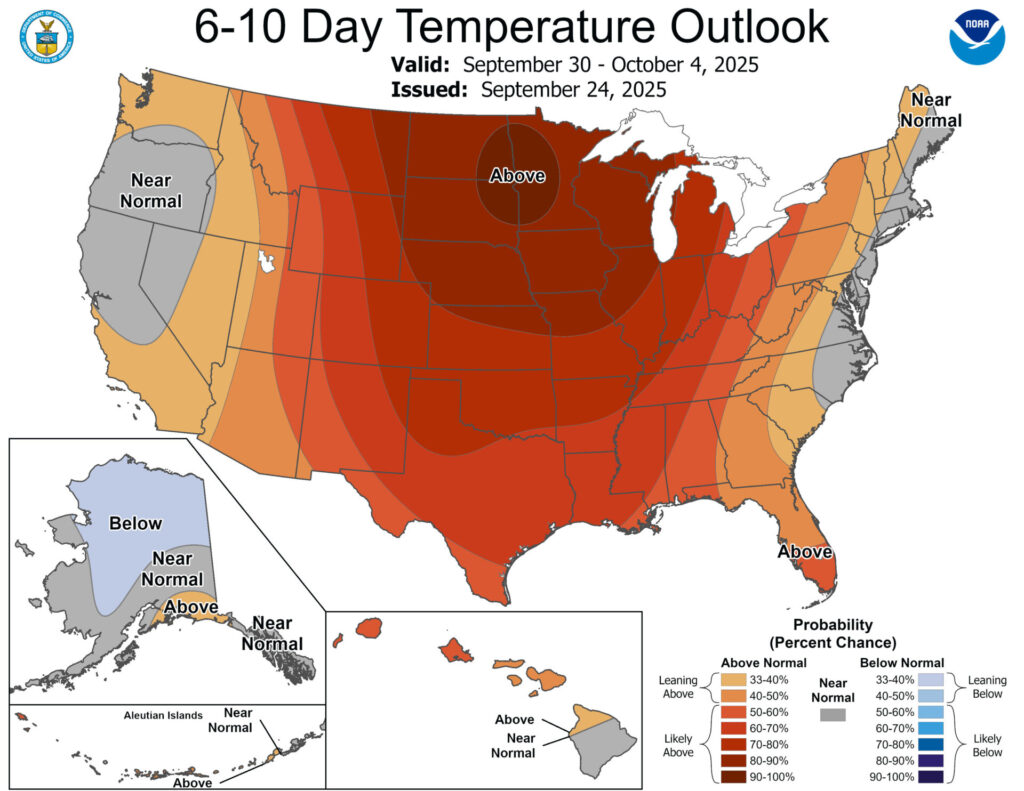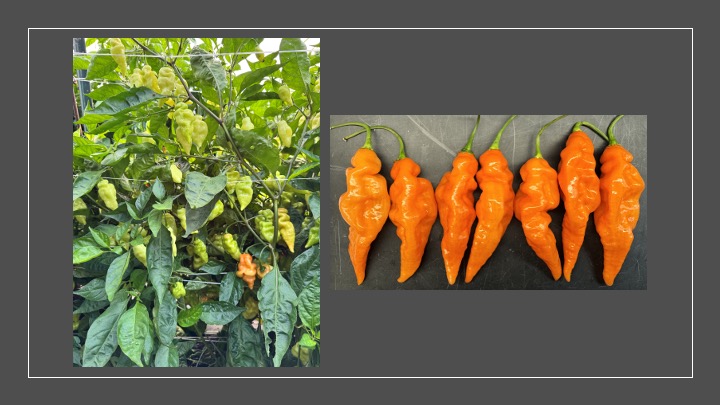Dear Valued VCH Readers,
Welcome to this week’s edition of the Vegetable Crops Hotline!
As we approach the final chapter of Indiana’s vegetable growing season, this marks our penultimate newsletter issue for the year. While the calendar suggests we should be settling into typical late-season conditions, the 10-day forecast tells a different story—temperatures are trending above average for this time of year, potentially extending growing opportunities and requiring continued attention to crop management.
Even as the active growing season winds down, this is an ideal time to focus on the foundational practices that will set you up for success in future seasons. Food safety remains a year-round priority, and we’re pleased to highlight an upcoming Cleaning and Sanitation Workshop on December 9th at the Purdue Extension Food Safety Training Hub in Vincennes. These practices not only protect public health but also build the customer trust that drives long-term business success.
This week’s newsletter also introduces valuable resources for the seasons ahead, including the newly redesigned cli-MATE portal from the Midwestern Regional Climate Center, which provides streamlined access to climate data that can inform your planning decisions. We’ll also address an important legislative development with Indiana Senate Bill 28 and what it means for agricultural water users, plus share insights from the recent Southwest Purdue Agricultural Center Pumpkin Field Day.
As we prepare for our final newsletter of the season, we encourage you to take advantage of these late-season educational opportunities and begin considering how this year’s experiences can inform your planning for next season.
Interesting Find of the Season
During the winter of 2025, I was searching for new, tapered pepper varieties to include in my high tunnel pepper variety trial. I came across a variety called Habanada Sweet. This variety was developed from the habanero pepper, but it is sweet and non-spicy. The fruit has beautiful floral notes and a bright, tangerine-colored appearance when mature. As far as being heatless, most of the fruit is. However, as you approach the placenta, near the point of attachment of the fruit to the pedicle, it becomes a little spicy (a few minor Scoville heat units). Nothing overwhelming. Read more about this in January 2026 when the complete pepper variety evaluation report is published in the Midwest Vegetable Trial Report.
Indiana Horticulture and Small Farm Conference, March 3-5, 2026
Save this date! In 2026, for the very first time, the Indiana Horticulture Conference & Expo and the Indiana Small Farm Conference are joining forces to present a joint meeting at the Hendricks County Fairgrounds from March 3 to 5. Join us as we merge two popular Purdue Extension events into one dynamic conference. Designed for specialty crop growers and small farmers region-wide, featuring premier educational sessions.
Growers and Purdue Extension Educators
Your input and expertise make this newsletter a truly useful resource. If you have hot topics you’d like us to cover, success stories to share, or questions for our Extension specialists, please get in touch with us at plangenh@purdue.edu or contact the specialist directly. We also welcome high-quality photos of pest issues, unusual symptoms, or innovative production practices you’ve implemented on your farm.
Website Links in Newsletter Articles
We frequently include links to websites or online publications. If you are unable to access these resources, please don’t hesitate to contact your local Purdue Extension office or us to request a hard copy of the information.
Midwest Vegetable Production Guide
The 2025 Midwest Vegetable Production guide is now available for growers to visit online at mwveguide.org, or you can download and print a guide from your computer at mwveguide.org/guide. The guide can also be purchased for $15 per copy. Contact your Extension Office or Stephen Meyers (slmeyeres@purdue.edu) directly to buy a copy.
Midwest Vegetable Trial Reports
Are you still considering purchasing vegetable seeds? The Midwest Vegetable Trial Reports feature many articles to help you make an informed decision. The resource also hosts research results related to production.
Best regards,
Petrus Langenhoven
Clinical Assistant Professor and Vegetable Extension Specialist
Department of Horticulture and Landscape Architecture
Purdue University

